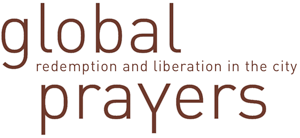This project investigates the articulation of religion and urban space in post-war(s) Beirut as it shapes the city’s everyday geographies. In a city where talk of religion and sectarianism produces and reproduces our everyday spatial practices, such conceptions of difference have come to shape the privacy of our homes as much as the city’s public spaces. The project brings together a collection of small-scale research studies that examine Beirut’s ever-shifting borderlines that define people’s “differences” along sectarian/religious lines. In theoretical terms, the project approaches the concept of religion/sect as an urban practice. To that end, it neither questions nor tries to define the concepts of religion and sectarianism. Rather, it assumes the perspectives of residents and professionals as they engage with the question of how their conceptions of religious and sectarian differences shape their spatial practices and experiences in the city. Using mixed research and media approaches, the four participating projects investigate the quarters of Wata Mssiatbeh/Mar Elias (Massa Ammouri), Hayy Madi/Al-Hadath (Hiba Bou Akar), Barbour/Al Mazraa (Mohamad Hafeda), Hayy el-Krad in Bourj el-Barajneh (Dana Mazraani).
